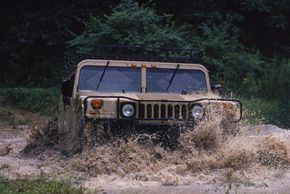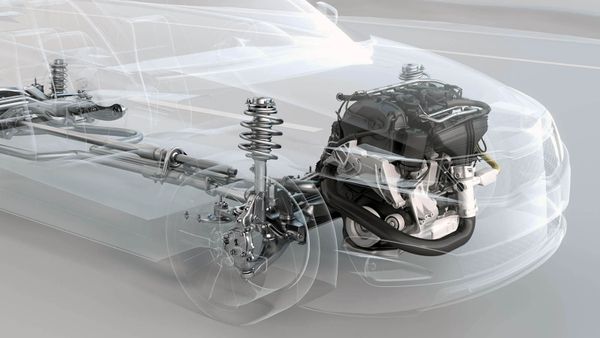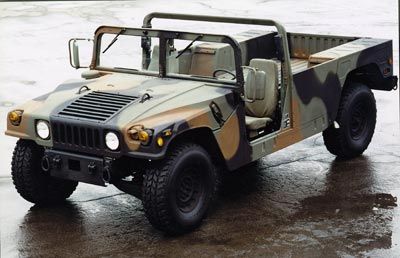You sometimes see military vehicles running in "extreme" conditions, and these conditions can include deep submersion during river fording. Creating a vehicle that can run submerged is a challenge -- In order for any type of combustion engine to run it must have a source of air, and it must be able to release exhaust gasses. If the water is not too deep (a few feet), the exhaust gases can take care of themselves because they are under pressure. The air intake is usually the problem -- as soon as you submerge the air intake, the engine can no longer get air and it will stop running.
You can get around the air intake problem by adding a snorkel. Military Humvees often have a snorkel attached, and it allows them to submerge in up to 5 feet (1.6 meters) of water (see this page for some nice pictures of a typical snorkel). In order to handle submersion like this the engine and the rest of the vehicle must be waterproofed. So your question changes into, "Is it easier to waterproof a diesel engine than it is to waterproof a gasoline engine?"
Advertisement
To waterproof any off-road vehicle, there are lots of different things to think about. For example:
- Any electrical devices like the instruments, engine control computers, motors (for fans, windshield wipers, etc.), lights, battery, etc. must be sealed.
- Any venting for things like the crankcase, differential, etc. must be sealed (or vented at the same level as the snorkel).
- The fuel tank must be sealed and vented appropriately.
- Any chamber or crevice that can fill with water must have a drain.
Assuming that all of these other things have been taken care of, and assuming that the engine is waterproofed, then the vehicle can run underwater.
In general, it is easier to waterproof a diesel engine than it is to waterproof a gasoline engine because of the sparkplugs and ignition system in a gasoline engine. These components run at high voltage and sealing them is harder (but not impossible). A diesel engine, on the other hand, has no ignition system (see How a Diesel Engine Works). If the diesel engine has a mechanical fuel pump for the injectors and a mechanical transmission, there are also no engine control electronics to worry about. These features can make a diesel engine relatively easy to waterproof. That's why most military vehicles that ford rivers or run submerged have diesel engines.
Advertisement


